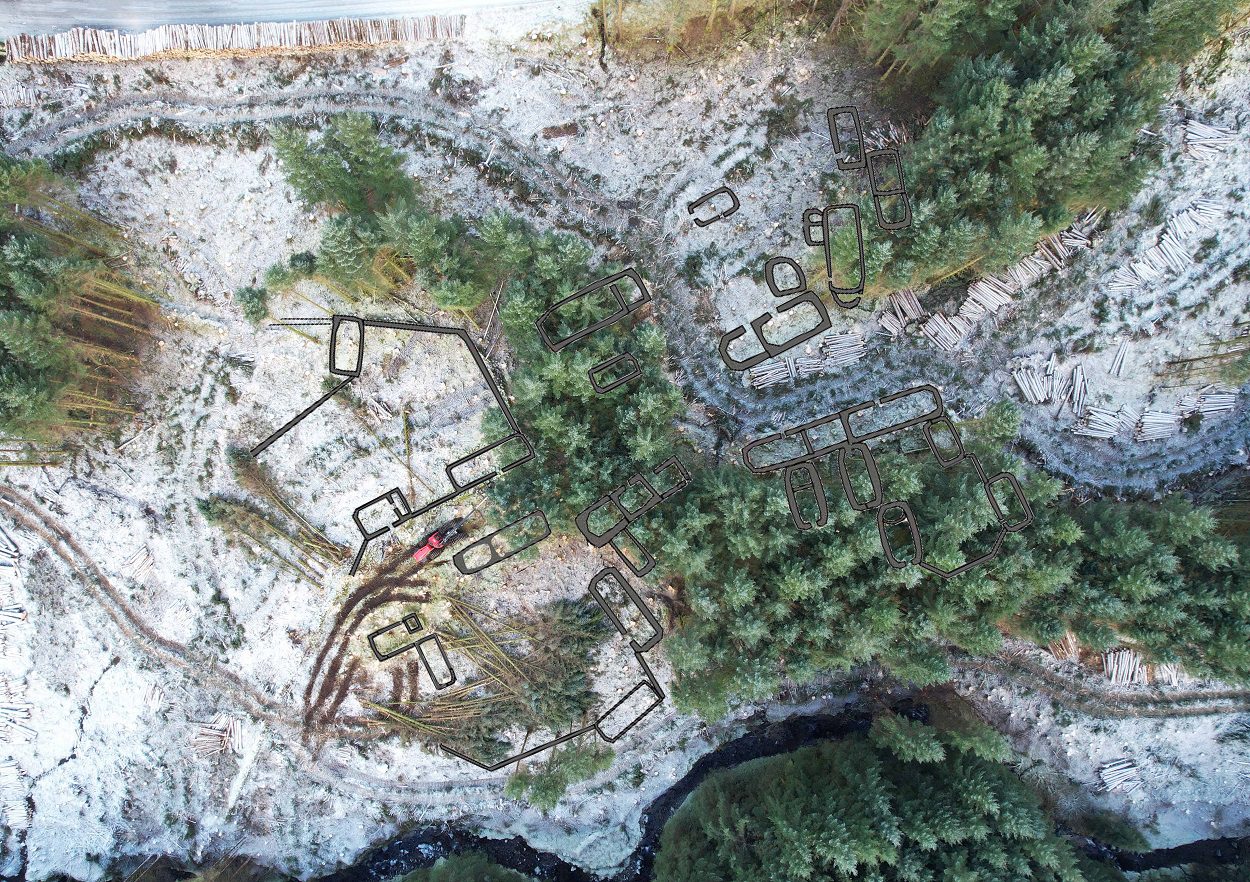Archaeologists have uncovered the remains of a post-medieval township in the Glen Brittle Forest on the Isle of Skye.
The discovery was made during an environmental survey before the harvest of a mature conifer plantation.
AOC Archaeologists have found traces of 28 buildings, consisting of houses, byres, barns and corn-drying kilns, which are surrounded by fields and stock enclosures that traditionally formed a small clachan (or township).
An early 19th century map surveyed by John Thomson in 1832 names the site as the township of Brunell, a small agricultural township which dates from the 17th and 18th centuries.
A passage in the Parish of Bracadale on Skye describes Brunell as: “The parish produces black cattle, sheep and horses. Black cattle is the main staple… from the returns of which the people pay their rents and supply themselves with necessities. There are small quantities of sheep on each farm, but there is no farm laid out entirely to sheep pasture”
During the late 18th century, the township experienced a decline due to farms consolidating land for sheep-grazing and reduced the need for labour, consequently displacing and leaving the small tenants adrift.
By the Ordnance Survey of 1881, the town had dwindled to merely two roofless buildings and several fields, suggesting that the entire population had abandoned the township by this time.
According to Forestry and Land Scotland, the survey data was used to guide machine operators during tree harvesting, ensuring they could fell trees without causing harm to any archaeological features.
Header Image Credit : Forestry and Land Scotland
Sources : Forestry and Land Scotland – Dig deeper: revealing the ruins of Brunell Township.





